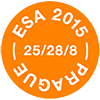RN coordinators:
Ana Romão, Academia Militar, Lisboa, Portugal
anaromao74(at)gmail.com
Andrea Vargiu, Università di Sassari, Sassari, Italy
avargiu(at)uniss.it
|
Differences and inequalities in Southern Europe: challenges for sociological imagination Very much has been said about the causes of the present difficult situation in Europe marked by growing inequalities and poverty as well as diffused uncertainty and societal discomfort. Economic and financial factors along with neoliberal policies are often called upon as the main driving forces leading to such a situation. Those explanations only partially contribute to the understanding of the actual social situation both at the systemic and life world levels and thus to the search for possible solutions. In fact, the picture is probably much more complex than those that most diffused approaches tend to outline. The sometimes excessive emphasis on the financial and economic crisis probably tends to hide some relevant factors that are at play and have a very important role in shaping the present situation. Sociological imagination is thus needed to overcome simplistic analysis that reduce complex phenomena mainly to their economic dimensions. Also, the need is strong for overcoming a crisis centered approach, as crisis is mainly a temporary condition, whereas societal discomfort and social inequality appear as a constant feature of contemporary societies in the last decades. We need to develop a deeper understanding of societal forces driving the transformations that led to the present situation in Southern European societies by critically addressing that issue out of mainstream explicative models. We also need to develop a greater understanding of how people deal with the present situation in their daily life, how they react and elaborate viable solutions. Moreover, also given the present state of the art of research policies, we need to understand whether and how sociological thought and research can contribute to find answers and identify strategies for coping with the present situation both at systemic and daily life levels. The present call for papers seeks for original contributions that can help build such understandings with a peculiar focus on Southern European societies. Specifically, RN27 is seeking for contributions that make use of sociological imagination in order to critically approach some key issues related to such questions as: what is the specifically sociological understanding of what is presently happening in Southern European societies? What is the present situation of social sciences and particularly of sociological research and theory in those countries, within a context of drastic budgetary reductions and profound transformations of research systems? What role can sociology play in such a context and how? Shall it be a public, a civic sociology or a purely academic discipline? We would like to recompose the elements of the circle which comprises the present critical situation of Southern European countries, its sociological understanding and the ways to act for change. Coherently with the dialogic approach that characterizes the initiatives promoted by RN27, we are seeking for contributions that can feed the debate in our working sessions both by shedding light on the larger picture or providing for specific insights, as well as papers that try to elaborate answers or that leave room for doubt and open questions. Open confrontation and free debate are very much needed presently to stimulate collective sociological imagination. Consistently with RN27' linguistic policy, contributions in different languages are welcome. |
|
Notes for authors Authors are invited to submit their abstract either to the general session or any specific session. Please submit only to one session. After abstract evaluation, coordinators will have the chance to transfer papers between sessions where applicable. Abstracts should not exceed 250 words. Each paper session will have the duration of 1.5 hours. Normally sessions will include 4 papers. Abstracts must be submitted online to the submission platform, see below. Abstracts sent by email cannot be accepted. Abstracts will be peer-reviewed and selected for presentation by the Research Network; the letter of notification will be sent by the conference software system in early April 2015. Abstract submission deadline (extended): 15th February 2015 Abstract submission platform: www.esa12thconference.eu |
|
If you have further questions on the conference, please visit the conference website. For further information on the Research Network, please visit www.europeansociology.org. |






